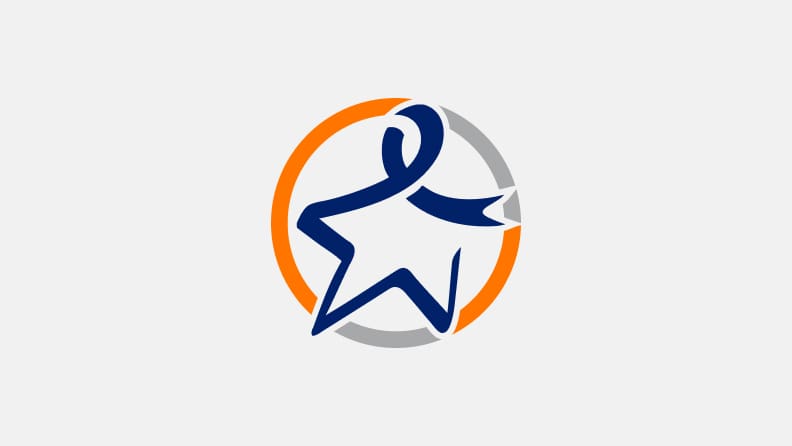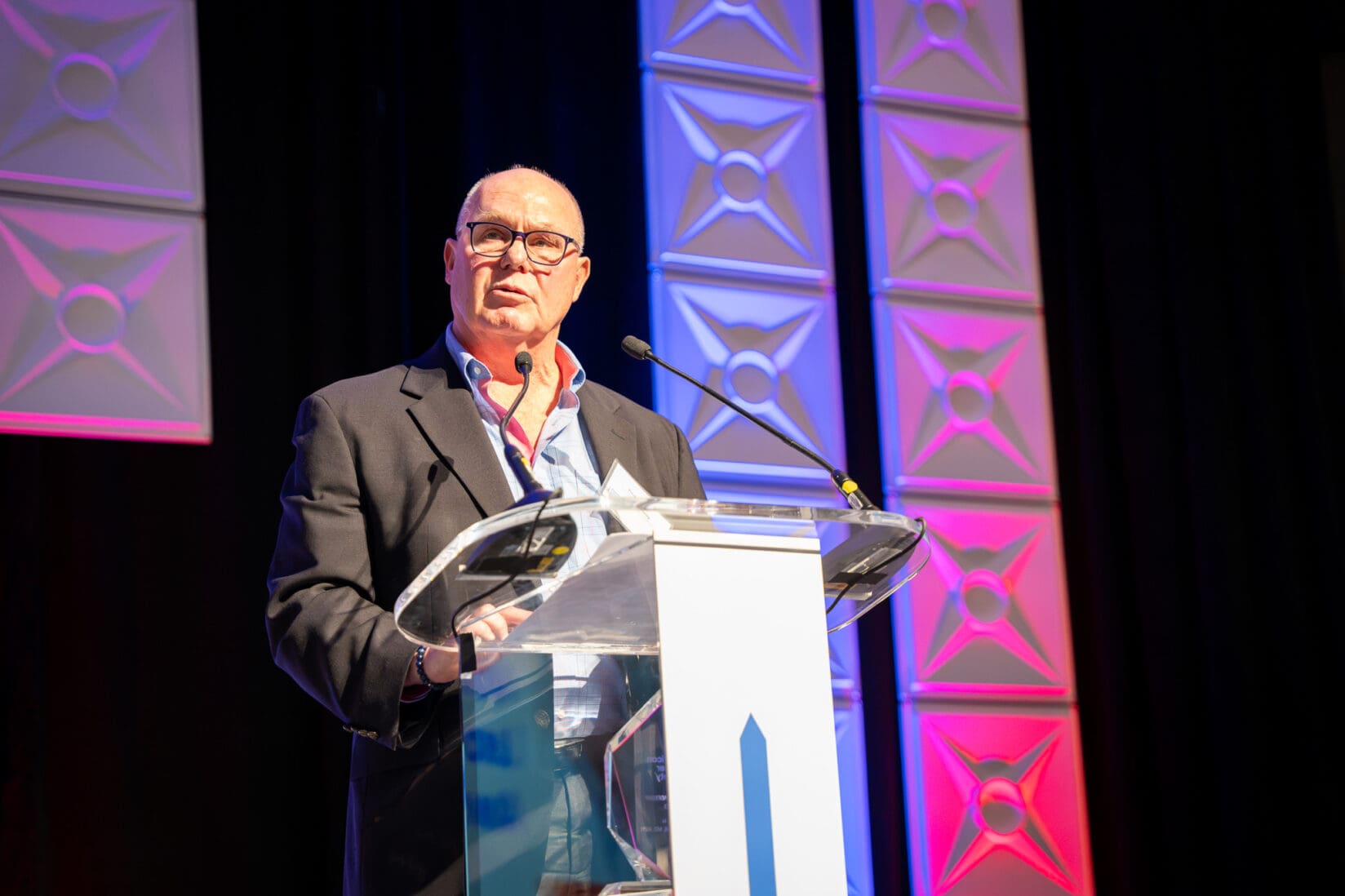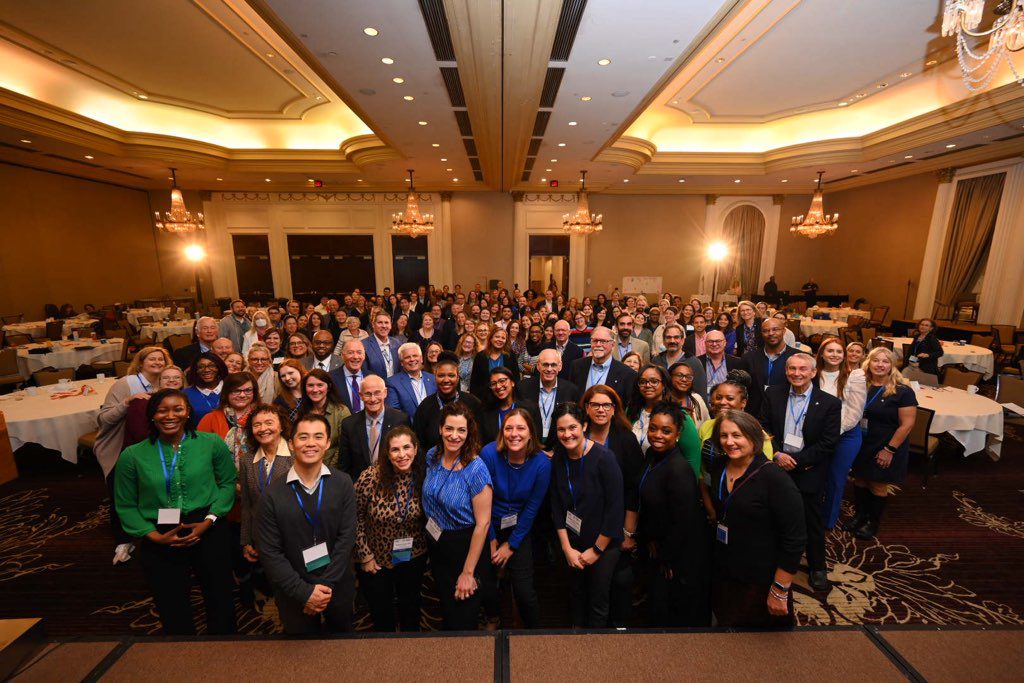Roundtable Recognizes Blue Star Challenge Award Winners

The National Colorectal Cancer Roundtable presented the 2011 Blue Star Challenge awards November 11, 2011, at the 15th Meeting of the National Colorectal Cancer Roundtable: Using What Works: Turning Effective Public Health Strategies into Practice Reality. The Blue Star Challenge recognizes some of the most creative, inspiring, and distinctive methods of increasing colorectal cancer screening awareness through the use of the Blue Star symbol.
This year’s overall winner was the Washington state Colon Cancer STARS, which had an inspiring, interactive visual display of the Blue Star at a Rotary Club race for colorectal cancer awareness in Mercer Island, Washington. The organization, which is made up of volunteers and survivors, focuses on support, awareness, resources, and screening for colon cancer prevention. The group painted a huge blue star on the grass and invited passersby to sign little flags that they then put in the star, helping to get the public’s attention, raise awareness about screening and celebrate survivorship. The entry was submitted by Anita Mitchell of Washington Colon Cancer STARS.
The American Cancer Society Eastern Division was recognized for the most attention- grabbing strategy for their Tag2Nag Facebook campaign. The campaign, submitted by Michelle Tropper, Ashley Engelman, and Jennifer Coulombe, is a Facebook-based intervention in which users can “tag” other users in a series of images with messaging that will “nag” them to get screened for colon cancer.
The Center for Colon Cancer Research at the University of South Carolina was recognized for originality for their Photo Book, which captured their March 2011 Blue is the New Black campaign. The campaign was designed to make colon cancer prevention fashionable. They enlisted cancer champions – cancer survivors, family members, doctors, scientists, government leaders, business owners, and executives – to help start a public dialogue and shed light on the fact that people are embarrassed or afraid to talk about colorectal cancer. Working with a team of experts, including fashion designer Carmen Marc Valvo and celebrity stylist Laura Schuffman, the champions were adorned from head to toe in the latest blue star trends, photographed, and featured in a Blue Star Trends photo book. The entry was submitted by project director Anjee Davis.
The Jay Monahan Center for Gastrointestinal Health at NewYork-Presbyterian Hospital /Weill Cornell Medical Center Make That Call campaign in New York City was recognized for its ability to spread awareness. The campaign boiled down the screening message to a very tangible action step – for all New Yorkers 50 and older to make that call to their doctor to schedule a colon cancer screening test. As part of the Make That Call campaign, the center collaborated with Katie Couric, WCBS, New York City Department of Health and Mental Hygiene, Citywide Colon Cancer Control Coalition (C5), New York City Health and Hospitals Corporation, American Cancer Society, Colon Cancer Alliance, Colon Cancer Challenge Foundation, and Prevent Cancer Foundation, as well as the New York Public Library, Brooklyn Public Library, and Queens Library with over 200 library branches in all five boroughs; Duane Reade with over 200 stores in all five boroughs; New York Health & Racquet Club; Talbots; Juva Spa; and other participating businesses and organizations, to help increase colon cancer awareness and screening. The campaign included print public service announcements (PSAs), outdoor digital billboards, and television and online broadcast PSAs featuring Katie Couric and Dr. Travis Stork from CBS’ The Doctors. The entry was submitted on behalf of Tamar Wallace of the Jay Monahan Center.
CVS Pharmacy’s Raising Awareness of Colon Cancer effort was recognized for their educational strategy. A unique collaboration among CVS Caremark, Blue Cross Blue Shield of South Carolina, and the Center for Colon Cancer Research at the University of South Carolina took advantage of the various touch points that CVS Caremark has with millions of individuals both locally in South Carolina and through their nationwide Web presence to educate the public about colon cancer and the importance of screening. The Blue Star was displayed prominently on the company’s Web site, on printed receipts, and on pins worn by employees. Laura Long, MD, of Blue Cross Blue Shield of South Carolina; Michele Polgar, RpH, MBA, and Stephen Reyes, RPh, DM, of CVS Caremark; and Franklin Berger, PhD, of the Center for Colon Cancer Research, were recognized for their work. The entry was submitted by Anjee Davis of the Center for Colon Cancer Research.
Bob Baker was recognized for his inspirational strategy – a three-month, 4,000-mile bicycle ride, supported by the United Ostomy Association of America (UOAA), across the northern tier of the United States. He and two other cyclists spread the message of hope, inspiration, and education about living with an ostomy. Baker is a colorectal cancer survivor and a past vice president of UOAA, as well as a Colondar model and a regional recipient of the Great Comebacks Award. Linda Aukett of UOAA submitted the entry.
“These individuals and organizations are using creative, innovative, and thought-provoking strategies to raise awareness of colon cancer and the importance of screening,” said Dr. Thomas Weber, chair of the NCCRT. “We at the Roundtable encourage the entire cancer community to spread the message about the importance of colorectal cancer screening and to help unify our efforts through the use of the Blue Star as a symbol of hope for a future free of colon cancer.”
Introduced in 2004, the Blue Star is the universal symbol for colorectal cancer that raises awareness about how to prevent colorectal cancer, the nation’s third-leading cause of cancer death in both men and women. The Roundtable encourages organizations to incorporate the Blue Star and the universal message that colorectal cancer is preventable, treatable, and beatable into their communications and awareness efforts.
Established in 1997 by the American Cancer Society and the Centers for Disease Control and Prevention (CDC), the Roundtable is a national coalition whose ultimate goal is to increase the use of proven colorectal cancer screening tests among the entire population for whom screening is appropriate. The Roundtable is chaired by Thomas K. Weber, MD, professor of surgery at the State University of New York at Downstate and chief of surgery at the Department of Veterans Affairs New York Harbor Healthcare System, Brooklyn Campus.
We Highlight Successes, Leaders, Best Practices, And Tools That Are Making An Impact In The Nationwide Movement To Reach 80% Screened For Colorectal Cancer.
Do you have a suggestion for a future blog topic? We welcome you to share your suggestions by emailing [email protected].
Blog Policy
Opinions expressed in these blog posts are that of the author and do not represent policies of the National Colorectal Cancer Roundtable or the author’s institution.
Our staff moderate all comments on the 80% Blog. While we do not censor based on point of view, we will delete or edit comments that are offensive or off topic. Click here to view full version.
© 2024 American Cancer Society National Colorectal Cancer Roundtable. All rights reserved.


